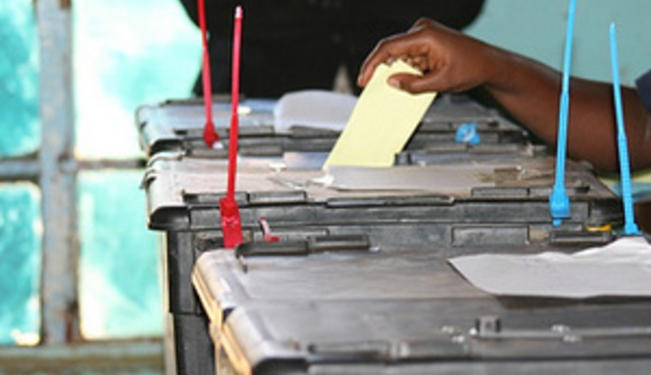For the first time after the violence that followed 2007 elections, Kenyans are about to cast their vote again.
Background
Kenya, officially named the Republic of Kenya, is a country on the East Coast of Africa that is roughly twice the size of the United Kingdom..
Kenya has a long colonial history beginning in 1885 when Germany took possession of the coastal lands. However, it handed over its Kenyan holdings to the United Kingdom in 1890. Kenya remained a British colony until December 12, 1963. The Kenyan African National Union (Kanu) took control of the country and on December 12, 1964, exactly a year later, the Kanu formed the Republic of Kenya and Jomo Kenyatta became the first president.
The new presidency began outlawing opposition parties including the Kenya People’s Union, which was formed by the vice president, Oginga Odinga. Kenyatta was reelected in 1974 with Daniel arap Moi as his vice president, who took office when Kenyatta died in 1978. Under Moi, Kenya was declared a one-party state in June of 1982. This was followed by a failed air force coup in August of 1982, which did little to stop Moi who continued to take political prisoners and was rumored to be violating human rights.
In 1991, Odinga and several other opposition leaders formed the Forum for the Restoration of Democracy (Ford), which was also outlawed and its leaders were taken as political prisoners. Moi received much criticism and was condemned by many other nations who suspended their aid to Kenya. In December of 1991, Kanu decided to institute a multi-party political system. Four months before the 1992 elections, Ford split into two separate factions: Ford-Asili, led by Kenneth Matiba, and Ford-Kenya, led by Odinga. Moi was reelected in the first multi-party elections in 1992. Two new political parties, the United National Democratic Alliance and Safina, were both formed before the 1997 elections but Moi won his last election this year.
Moi was finally defeated in the 2002 elections which were won by Mwai Kibaki, a former vice president and a founder of the Democratic Party. Under Kibaki, there was government emphasis on anti-corruption but Moi is granted immunity from a death sentence on corruption charges. In 2005, voters rejected a proposed constitution because they felt it gave the presidency too much power. The 2007 elections erupted in ethnic violence leaving Kibaki in power and killing 1,500. Finally in 2010, a new constitution was passed designed to limit the power of the presidency.
Why is this election important?
This will be the first election since the approval of the new constitution. While the new constitution divides Kenya into 47 counties, each with its own governor and parliament that makes budgetary decisions, big time politicians are controlling Kenyan politics.
Recent party primaries were filled with violence; one election official was stabbed to death in western Kenya and two journalists were severely beaten in Kibera. This leads many to be fearful that the elections will cause Kenya to break into violence again like in 2007. Additionally, corruption became evident at the primaries once more; Ralia Odinga, prime minister and son of Oginga Odinga, tried to nominate his brother and sister for office. The people, however, are testing out the new powers they have been given by the Constitution and overwhelmingly outvoted Odinga’s siblings.
Currently, there are eight candidates running for president, all of who appeared in Kenya’s first political debate on Febraury 11th. Odinga and Uhuru Kenyatta, son of the founding president Jomo Kenyatta, are both frontrunners in the presidential race so far with Odinga slightly surpassing Kenyatta in recent polls. Kenyatta is also facing charges from the International Criminal Court for the role he allegedly played in the ethnic violence after the 2007 election. Both men have a long history tying them to the political corruption, which has long been a part of the Kenyan government. However, one is likely to become president and bring that corruption to the newly refined government and constitution.
The views expressed in this article are the author's own and do not necessarily reflect Fair Observer’s editorial policy.
For more than 10 years, Fair Observer has been free, fair and independent. No billionaire owns us, no advertisers control us. We are a reader-supported nonprofit. Unlike many other publications, we keep our content free for readers regardless of where they live or whether they can afford to pay. We have no paywalls and no ads.
In the post-truth era of fake news, echo chambers and filter bubbles, we publish a plurality of perspectives from around the world. Anyone can publish with us, but everyone goes through a rigorous editorial process. So, you get fact-checked, well-reasoned content instead of noise.
We publish 2,500+ voices from 90+ countries. We also conduct education and training programs on subjects ranging from digital media and journalism to writing and critical thinking. This doesn’t come cheap. Servers, editors, trainers and web developers cost money.
Please consider supporting us on a regular basis as a recurring donor or a sustaining member.
Support Fair Observer
We rely on your support for our independence, diversity and quality.
Will you support FO’s journalism?
We rely on your support for our independence, diversity and quality.




